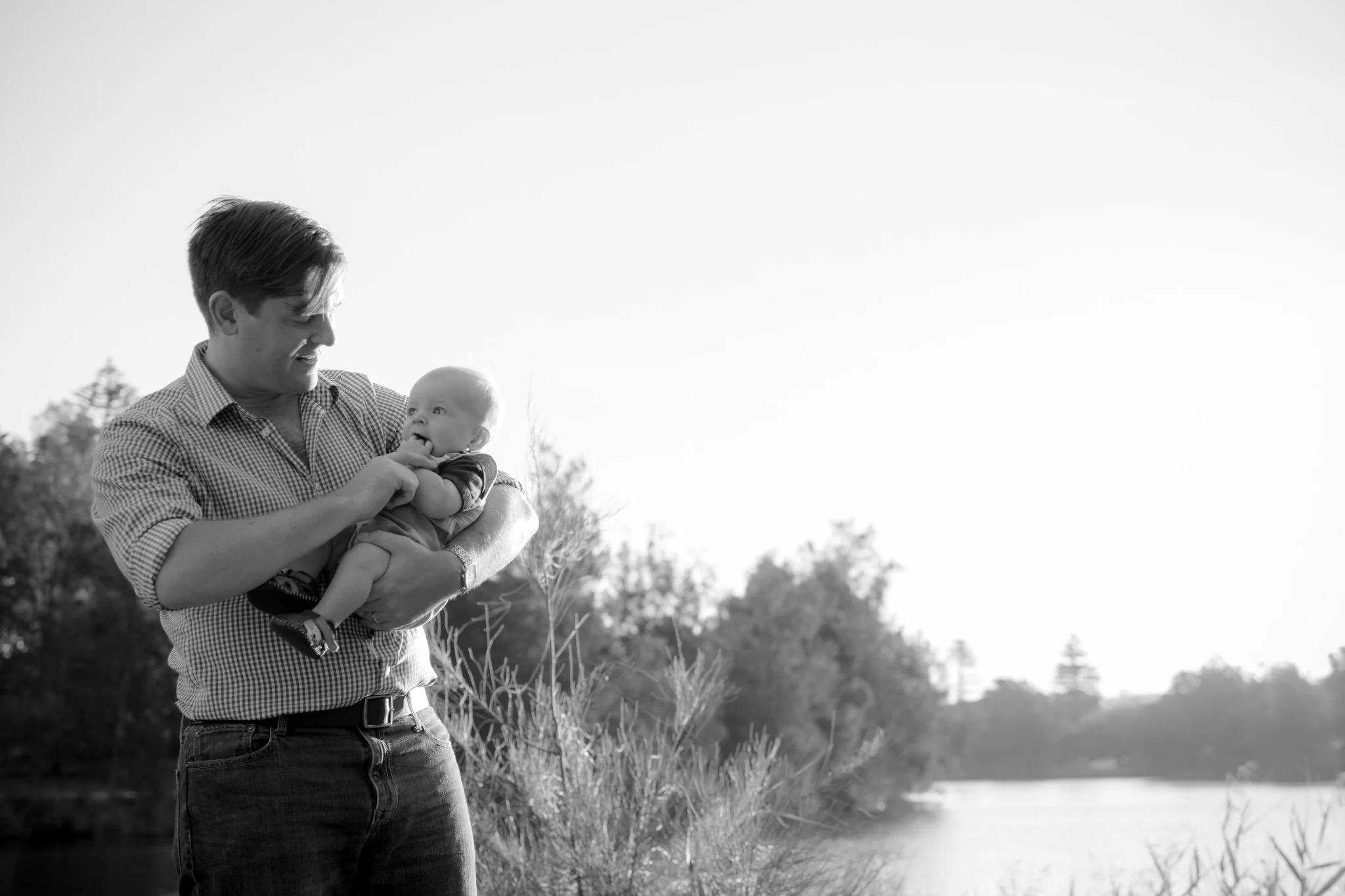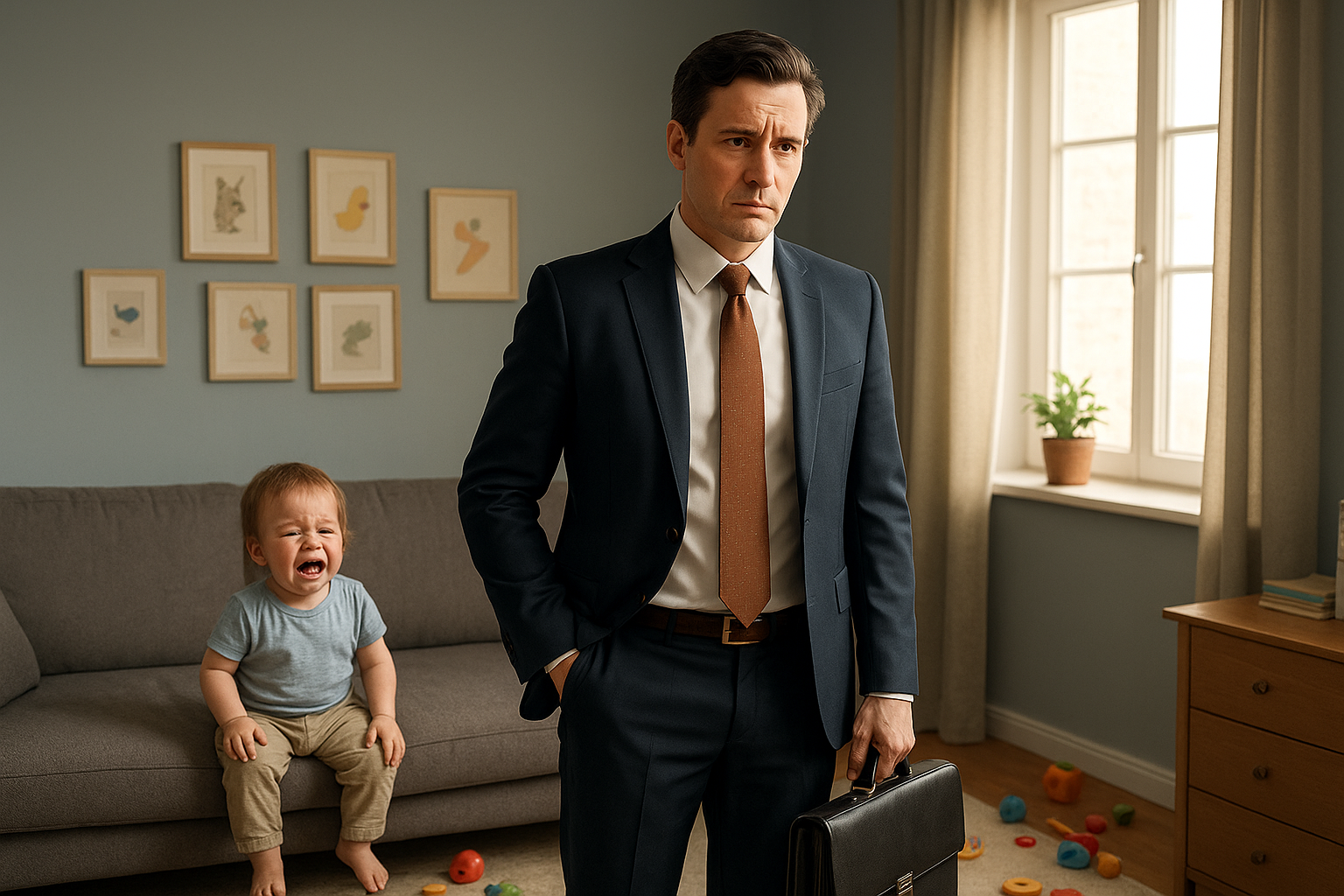
Dad Life
“Fathering is the best thing you are ever likely to do - for your own satisfaction and joy, and for its effect on the future of other human beings. And it’s good fun. ”
Importance of Dads
Dads matter - to their children’s development, their family’s and partner’s wellbeing and to society as a whole. Father’s play a vital role in children’s emotional, social and cognitive development, strengthen family relationships through partnership and care, and contribute to building healthier and more equitable communities. When dads are actively engaged, everyone benefits - kids, families and society.
Boys with absent or problem fathers are statistically:
more likely to be violent, get hurt, get into trouble, do poorly in school and be members of teenage gangs during adolescence
less likely to progress to university or have a good career, marry successfully or become effective fathers themselves.
- Steve Biddulph, Raising Boys in the Twenty-First Century (2018)
Fatherhood is changing
Today’s dads are more likely to:
Take parental leave
Spend more time caring for their children
Use flexible work options
This is driven by:
More paid parental leave offered to dads (currently 68% of all Australian employers)
Generational shifts in social norms and expectations
Changing demands on families
Created by a dad for dads, Suit Tie Stroller is a movement empowering men to break the mould of harmful social norms and expectations to discover the father they are meant to be.
Harmful fatherhood stereotypes
Fatherhood stereotypes reflect dominant social expectations, reinforcing harmful and outdated behaviours.
The world wars, economic depressions and booms, rapid advancements in technology, the machine age and globalisation of the 20th century has drastically changed and reshaped how we behave and organise our lives today.
While the generation of men and fathers who ‘came of age’ through surviving two world wars and the Great Depression, this generation also suffered severe depression and undiagnosed post traumatic stress trauma, often leading to alcoholism, absenteeism and broken relationships, while the post economic boom continued to drive men out of the home more than ever before.
While the Boomer, Gen X and Millennial generations each evolved to become incrementally more physically and emotionally involved than their predecessors, three core traits have continued to dominate social expectations of fathers today:
Primary breadwinners - driving absenteeism and gender inequality
Tough disciplinarians - normalising and modelling the suppression of emotions, harmful to men’s mental health and understanding of healthy masculinity
Incompetent as carers - despite evidence to the contrary, men are conditioned to believe that they are less capable than mothers at caring for children
These stereotypes have become so normalised that they are embedded in plain site and accepted as normal: in our policies, our workplaces and in our homes, framing men as providers and women as carers.
Men are built to care
Research shows men experience neurobiological changes when they become a dad:
Testosterone levels drop, never returning to previous levels
Oxytocin levels rise with hands on care, boosting dad’s ability to bond with his child
Dad’s increase in oxytocin triggers the baby’s development of oxytocin, preparing the next generation of carers
Dopamine levels increase with caregiving, making active fatherhood feel more rewarding
Primary carer dads experience activation of their amygdala and STS neurological networks, rewiring their brain to be better carers and to understand the needs of their child.
Active fatherhood benefits society
Dads who engage in caring
Break the stereotypes of fatherhood and define what is best for themselves and their families
Are happier
Experience increased bonding, engagement and confidence with their children
Raise children who are more likely to experience better health and cognitive outcomes
Build more equitable homes, work environments and society for themselves, their partner and their children
Maintain a more equitable distribution of unpaid work in their household
Increase their partner’s (and household’s) lifetime earning potential (including superannuation)
Become a purpose driven dad
Like any job or skill, becoming a competent carer takes time. And the best time to start is at birth.
Suit Tie Stroller helps dads develop a values-based vision for fatherhood as the starting point to becoming the dad you want to be.
Our resources
help men identify and overcome the influence of harmful fatherhood stereotypes
empower dads to make deliberate, values-based choices with their partner, setting them up to function the best way that works for them
give dads the tools to become authentic and effective fathers
leverage modern research balanced with experiences from other dads
don’t tell you ‘how to dad’ - but unlock the true dad you were born to be.






